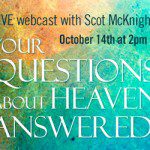Activists at the illegal-but-tolerated Cuban Commission for Human Rights and Reconciliation tallied 353 political arrests and detentions around Francis’s visit, and at least 882 in September, a 15-month high.
“The jury is still out on whether there will be a ‘Francis effect’ on religious liberty in Cuba, but the early prognosis doesn’t look promising,” said Andrew Chesnut, a Vatican expert at Virginia Commonwealth University.
“If there is any one institution in Cuba that possesses the legitimacy and organizational capacity to challenge the regime, it’s the Church, so expect only minor concessions, if any, vis-a-vis religious liberty in the near future,” he said.
Francis biographer Sergio Rubin, an Argentine journalist, said it’s not fair to judge the pontiff’s Cuba trip by the standards of the two previous papal visits.
“I think Francis has his sights on something more important: a process of change on the island that hasn’t been seen until now, with the exception of a few small economic changes,” said Rubin, who traveled to Cuba for the pope’s visit. “Francis has a bigger goal in mind: the lifting of the U.S. embargo, maybe in 2016.”












